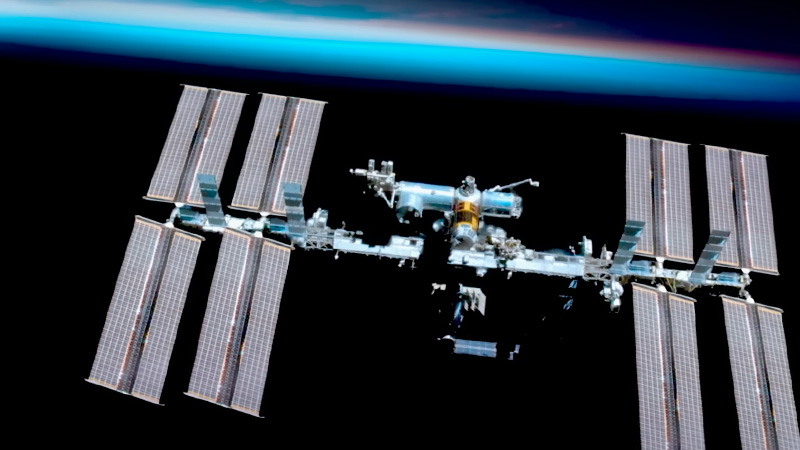The International Space Station (ISS) might not be breaking news, but this February, National Geographic released a documentary that dives into the station’s intricate engineering. It’s a solid reminder of what human ingenuity can achieve when you put a team of engineers, scientists, and astronauts together. While the ISS is no longer a new toy in space, for hackers and tinkerers, it’s still one of the coolest and most ambitious projects ever. And if you’re like us—always looking for fresh inspiration—you’ll want to check this one out.
The ISS is a masterpiece, built piece by piece in space, because why make things easy? With 16 pressurized modules, it’s got everything needed to keep humans alive and working in one of the harshest environments imaginable. Add in the $150 billion price tag (yes, billion), and it’s officially the most expensive thing humans have ever built. What makes it especially interesting to us hackers is its life support systems—recycling water, generating oxygen, and running on solar power. That’s the kind of closed-loop system we love to experiment with down here on Earth. Imagine the implications for long-term sustainability!
But it’s not just a survival bunker in space. It’s also a global science lab. The ISS gives researchers the chance to run experiments that could never happen under Earth’s gravity—everything from technology advancements to health experiments. Plus, it’s our testing ground for future missions to Mars. If you’re fascinated by the idea of hacking complex systems, or just appreciate a good build, the ISS is a dream project.
Catch the documentary and dive into the world of space-grade hacking. The ISS may be orbiting out of sight, but for those of us looking to push the boundaries of what’s possible, it’s still full of inspiration.
















“Video unavailable
The uploader has not made this video available in your country” (UK)
“Video unavailable” : same here (at the moment I’m in Spain) :-(
Only available in the US (and maybe Canada?)
Putting the ‘national’ into National Geographic.
And erasing the ‘international’ in international space station while they are at it.
‘oh say can you seee..’ (because you should not be able to you know.. :)
No, I could watch it with a German IP.
The troops are on their way!
(I think they fixed it actually)
Basically, this is a great example of unplanned irony:
The video is about a joint project of humanity, but is only available in sharply delimited regions of the real world…
Read “The Managerial Revolution”
I got this advert for Safari instead:
“A browser that’s actually private.
Online privacy isn’t something you should hope — it’s something you should expect.
Sponsored
Apple”
….. are they trying to tell me something?
ISS has to endure just 100 kPa. If it develops a pinhole leak, it can be sealed with some alu tape. Compare that to Titan submarine, which (for a while at least) had to endure about 40000 kPa. If it fails, then within miliseconds you turn from a carbon-based life form into a carbon-based fuel in a rather expensive, single use diesel lighter.
Why do people think it’s appropriate to compare spacecraft to submarines? It’s like pointing out that an excellent tweezer makes a terrible hammer.
And by the way, the solar system contains many times more unexplored ocean than Earth. And it also includes Earth. So we can step aside that old cliche.
I was thinking same as him, though.
Also, I remember reading that deep sea still is less being explored than the night sky.
I often think that space travel is being overrated when it comes to technology.
That ongoing “oh! it’s rocket science” attitude is what I think is an old clichè.
Once in orbit, an ion drive, a reliable power source and a C64 as a navcom are good enough.
The real challenge is a psychological, a biological one.
Re-entry is also critical, I admit, though.
No mention at all about the fact we can’t get our own people down. That’s intentional and so obvious that the absence is actually worse for PR than a mention. That’s a free tip btw.
Smells like “negative feedback prohibited” which is a death sentance in space. I hope I don’t have to mention historical examples.
I’ve been saying for a while that people need to reevaluate the currently-existing version of NASA because it isn’t the same org from which it borrows its fame.
“I’ve been saying for a while that people need to reevaluate the currently-existing version of NASA because it isn’t the same org from which it borrows its fame.”
Well, NASA seems to have turned from a federal agency that most people on earth had been respected to a commercial venture, a business, a corporation.
Just like modern space exploration (space exploitation) itself, which is all about commerce and securing resources on other bodies.
It’s like wild wild west again, but in space. Isn’t that great?
I mean, that’s America’s greatest gift to the world – cruel, hard capitalism. The Chinese have learned this game very well, have their own space program.
They may win, even. Not sure if that’s good or bad, though. 🤷
Poland:
150 billion eh? Australia is giving twice this amount to America and England on the promise of some second-hand nuclear submarines.